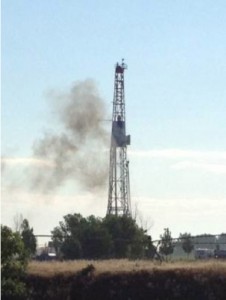
CO-04 (Special Election)
See Full Big Line
(R) Greg Lopez
(R) Trisha Calvarese
90%
10%

President (To Win Colorado)
See Full Big Line
(D) Joe Biden*
(R) Donald Trump
80%
20%↓

CO-01 (Denver)
See Full Big Line
(D) Diana DeGette*
90%

CO-02 (Boulder-ish)
See Full Big Line
(D) Joe Neguse*
90%

CO-03 (West & Southern CO)
See Full Big Line
(D) Adam Frisch
(R) Jeff Hurd
(R) Ron Hanks
40%
30%
20%

CO-04 (Northeast-ish Colorado)
See Full Big Line
(R) Lauren Boebert
(R) Deborah Flora
(R) J. Sonnenberg
30%↑
15%↑
10%↓

CO-05 (Colorado Springs)
See Full Big Line
(R) Dave Williams
(R) Jeff Crank
50%↓
50%↑

CO-06 (Aurora)
See Full Big Line
(D) Jason Crow*
90%

CO-07 (Jefferson County)
See Full Big Line
(D) Brittany Pettersen
85%↑

CO-08 (Northern Colo.)
See Full Big Line
(D) Yadira Caraveo
(R) Gabe Evans
(R) Janak Joshi
60%↑
35%↓
30%↑

State Senate Majority
See Full Big Line
DEMOCRATS
REPUBLICANS
80%
20%

State House Majority
See Full Big Line
DEMOCRATS
REPUBLICANS
95%
5%
 December 10, 2014 09:29 AM UTC
December 10, 2014 09:29 AM UTC 7 Comments
7 Comments
I won't believe it, until I sees it…Local Control…I don't see regular folk as being represented on this committee…Why is the burden of proof of harm always lands on the surface owner???
It was also a different time when the amount of land owned was usually such a (rural) expanse that the surface damage ever incurred did not impinge on the habitability of the surface owner's total parcel.
Today, without accommodation, industry can make nearly totally uninhabitable the homes, air, and water of hundreds and thousands of residents.
I hope that the panel listens to your well-reasoned argument, Duke. Adoption of the principle of reasonable accommodation would help keep many residents and school children from being gassed with methane and volatiles within Greeley city limits.
I think there are some good people on the panel that represent me pretty well. But that is not the issue really to me, which is that the charge of the committee–on paper is too narrow and its 'real charge' to avoid direct citizen action is suspect.
Until it is acknowledged that oil and gas development is a highly industrial, dangerous, toxic and polluting activity that the public has an absolute right to be protected from harm by, the safety of which must be incumbent on industry to demonstrate prior to permitting and not for citizens to show irrefutable harm, (i.e. proving that clustering of cancers, tumors, birth defects, around wherever unconventional field development occurs are not just 'anomalies' etc etc etc).there will be no peace in the oil patch.
from 9 news GOP (Perry Buck, (R) Windsor) rep to introduce compensation to mineral rights owners (frackers) should ban be placed- also in COSCO rag
Duke, this is really interesting. I think you should run it by a lawyer friend or three and get some feedback. Maybe now is a good time for us to enter the 21st century and rethink accommodation?
Did you hit the task force with this idea? Do you have plans to confront the COGCC with it?
While I was there, ardy, I talked with three of the commissioners about this idea. They were all interested and indicated that there are others thinking along this same line. We all know the frackers and the fracktivists are intransigent, and a compromise will be elusive. If achieved, said compromise will have to essentially be forced upon the two extreme camps.
The beauty of a 2,500' setback is that it provides a de facto ban on drilling in many towns, because you would have to find a clear circle almost a mile in diameter in order to locate a drill pad. Where those locations are available, it should be fairly low impact to the surrounding area because of the distance.
It also does not preclude any company from accessing their minerals. It will cost them a bit more, but mineral owners who have allowed surface development directly above the location of their minerals, without acting to prevent it, are guilty of failing to perform their due diligence. It falls into the category of "their tough luck"…they should have done something about it.